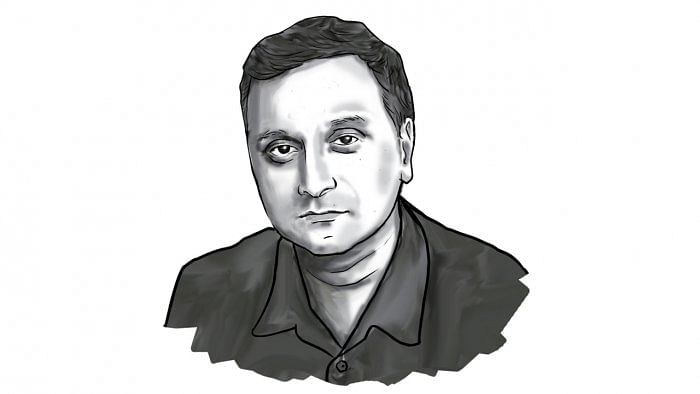
Chandan Gowda is an ISEC professor who looks for new ways of looking. X/@Chandan_Gowda73.
Credit: DH Illustration
In his autobiography, Many Worlds (1965), K P S Menon, the distinguished Indian diplomat and civil servant, writes: “Nehru was the architect of India’s foreign policy. We officials were but artisans. Yet, in working under him, we felt that we were more than artisans. One is reminded of the story of the three masons. When asked what he was doing, one of them said, ‘I am cutting stones.’ Another said, ‘I am earning my livelihood.’ The third said, ‘I am building a cathedral.’ In Jawaharlal Nehru’s days we in the Foreign Office had the feeling that we were building the cathedral of peace.”
In his address to the US Congress in 1949, Nehru spelt out the aims of India’s foreign policy as “the preservation of world peace and the enlargement of human freedom.” His founding foreign policy vision for the country has seemed noble and wholesome ever since I encountered it in my high school classes. Its inherent faith in humanity and life-affirming stance stood out with greater poignancy when I paused to mull over his legacy on his 135th birth anniversary last week. The total takeover of realpolitik considerations in world affairs at present where countries with clout aren’t showing the slightest idealism to halt the military violence in Ukraine and Palestine graphically contrasted with Nehruvian ideals.
Non-alignment, the phrase that commonly conveys Nehru’s original idea that India and other formerly colonised countries, and indeed any country for that matter, should not take sides with either of the Cold War rivals but retain the freedom to decide on global matters independently, on a case-by-case basis, was not, in his words, “a negative and neutral policy” but “a positive and vital policy that flows from our struggle for freedom and from the teachings of Mahatma Gandhi.” It cares that societies are not subjugated by foreign powers, that justice prevails, that disease and destitution are eliminated everywhere, that countries reduce armament expenditure.
There are other dimensions to Nehru’s philosophy of world relations. Apart from the familiar notion of peace as the absence of war, his view of peace encompasses the abstinence of violence inside the self as well as in human relations at large. In the same address to the US Congress, he explained: “Throughout her long history she (India) has stood for peace, and every prayer that an Indian raises ends with an invocation to peace. It was out of this ancient and yet young India that Mahatma Gandhi arose and he taught us a technique of action that was peaceful; yet it was effective and yielded results that led us not only to freedom but to friendship with those with whom we were, till yesterday, in conflict.” Nehru’s espousal of peaceful resistance (satyagraha) as a means of attaining as well as securing peace lifts foreign policy away from the narrow sense of strategic diplomacy between governments and imbues it with deep moral responsibility.
In Nehru’s world, cooperation is the defining attitude between countries and aspirations for world dominance or regional one upmanship are wholly absent. A peaceful co-existence with a commitment to avoid military and other hostilities also help define norms of interaction between countries. Reposing trust and faith in humanity to redeem itself, his ideas, which shaped the ethos of Third World foreign policy, especially in the wake of the Bandung Conference in 1955, continue to have great ethical appeal. They are, without doubt, a major contribution to modern political thought. Exposing the various military and trading blocs in the present as so many selfish arrangements, they still hold out potential for achieving ethical clarity, for restoring sanity and hope, at home and abroad.